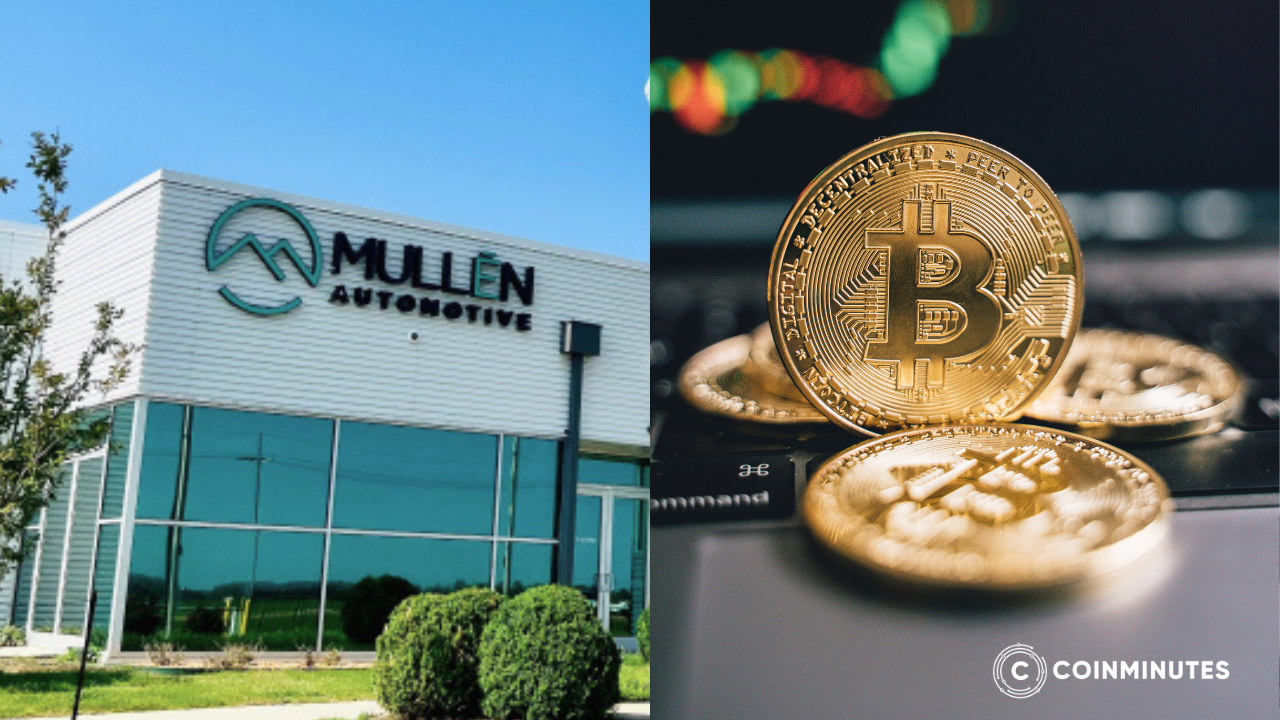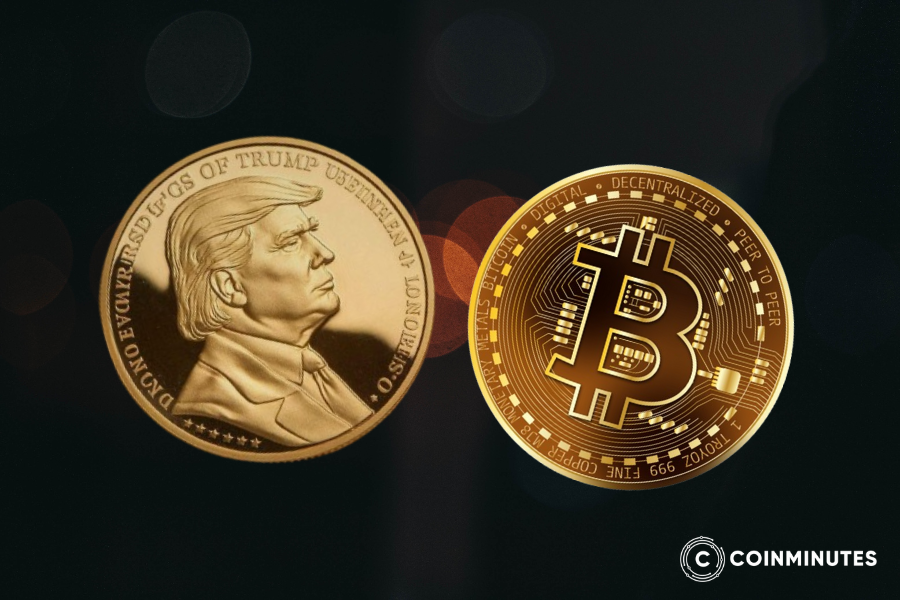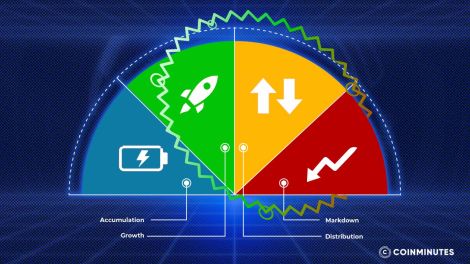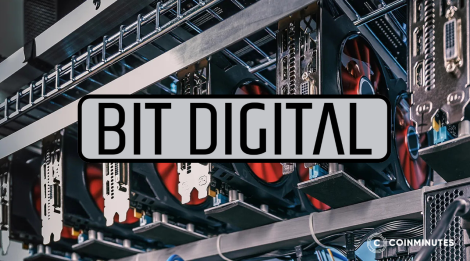US EV Maker Mullen Embraces Bitcoin and TRUMP Token Payments

Mullen Automotive (NASDAQ: MULN) just threw a digital grenade into the auto industry by announcing it will accept both Bitcoin and the politically-charged TRUMP token as payment for its electric vehicles. This unexpected move places the scrappy EV manufacturer at the convergence point of two explosive trends—electric transportation and cryptocurrency—potentially rewriting the rules of how Americans buy cars.
This isn't some PR stunt.
It's a calculated challenge to the entire automotive retail model. By embracing cryptocurrency payments for its commercial vehicles, Mullen has positioned itself to bypass traditional financing structures that have remained essentially unchanged since the 1970s. What does this mean for your next vehicle purchase? And could a relatively unknown EV maker actually revolutionize auto finance?
Survival Strategy: Why Mullen Jumped Into the Crypto Deep End
The EV market has become brutally competitive, with established auto giants and venture-backed startups fighting for survival. Cryptocurrency acceptance creates instant differentiation in a landscape where most vehicles blend together in consumers' minds.
"We believe that by accepting Bitcoin and TRUMP token, we can provide greater flexibility and convenience for our customers, while also tapping into new and growing user bases," CEO David Michery explained in the company's announcement.

But this runs deeper than marketing.
By focusing the payment option on its commercial vehicles—through both the Mullen brand and recently acquired Bollinger—the company targets fleet operators who manage purchases across multiple jurisdictions. For these buyers, cryptocurrency offers simplified international transactions without currency conversion headaches.
With auto loan rates sitting at decade highs, crypto payments create a potential escape hatch for buyers facing 7%+ interest charges. A business with appreciating Bitcoin can effectively self-finance vehicle purchases without first converting to dollars—a compelling advantage in today's rate environment.
When did buying a commercial truck become so financially complex?
TRUMP Token Gambit: Political Identity as Marketing Strategy
The inclusion of TRUMP token alongside Bitcoin stunned industry watchers.
Bitcoin's acceptance makes immediate sense—it's the established cryptocurrency giant with a $1.3 trillion market cap. But specifically naming the TRUMP meme coin reveals a far more calculated strategy. This controversial token, created as a tribute to the former president, exploded from obscurity to reach $600 million market capitalization despite having few practical applications.
"This is fundamentally a customer acquisition play," cryptocurrency analyst Sarah Chen told me yesterday. "By explicitly embracing the TRUMP token, Mullen instantly appeals to a politically engaged demographic with significant purchasing power and enthusiasm for alternative finance."
TRUMP token holders comprise approximately 150,000 active wallets according to on-chain analytics—a small but extraordinarily engaged potential customer base that has demonstrated willingness to support brands aligned with their values.
But the risks are obvious.
"Political polarization in consumer brands cuts both ways," warns marketing strategist James Wilson. "While Mullen might capture fierce loyalty from one demographic, they risk alienating others, particularly in the traditionally progressive-leaning EV market."
Yet in today's fragmented marketplace, perhaps targeted appeal proves more valuable than broad but tepid awareness.
Would you buy a car from a company that explicitly embraces your political values? Millions of Americans would.
EV Payment Race: Mullen Outflanks Tesla at Its Own Game
Mullen isn't pioneering automotive crypto payments. It's executing them better.
Tesla briefly accepted Bitcoin in 2021 before Elon Musk suspended the program, citing environmental concerns about mining. Ferrari began accepting crypto payments in select markets last year but limited them to wealthy clients through specialized dealers. Mullen's approach—embracing both established and meme currencies across its entire commercial lineup—represents the most aggressive mainstream implementation to date.
The contrast with Tesla is particularly notable.
"While Elon Musk tweets about Dogecoin and occasionally hints that Tesla might accept crypto again someday, Mullen has actually implemented what Tesla only flirted with," automotive industry analyst Michael Rivera points out. "It's the classic case of a nimble challenger moving faster than an established leader."
This agility creates real advantages.
By processing cryptocurrency payments directly, Mullen potentially eliminates significant transaction costs associated with traditional financing—savings that could boost profit margins or be passed to customers through more competitive pricing. The company hasn't disclosed whether it will hold cryptocurrency or immediately convert to dollars.
Timing matters tremendously here.
With the Bitcoin halving completed in April 2025 and prices pushing toward new highs, Mullen's announcement captures attention during heightened cryptocurrency interest and media coverage. This alignment of corporate strategy with market cycles demonstrates sophisticated understanding of the crypto ecosystem.
But can a smaller manufacturer successfully execute such complex financial integration?
The market seems skeptical. Mullen's stock price has fluctuated wildly since the announcement.
Beyond Payments: The Blockchain Revolution Coming to Your Garage
Cryptocurrency payments represent just the visible edge of a much larger transformation.
"Crypto payments are merely the entry point," automotive technology consultant Rebecca Taylor explains. "The underlying blockchain technology will eventually transform everything from supply chain management to vehicle titles to maintenance records."
This revolution is already beginning.
Several major manufacturers including BMW and Ford have implemented blockchain-based supply chain tracking that verifies component authenticity and ethical sourcing. These systems create tamper-proof records of parts provenance—particularly crucial for battery components with complex international supply chains.
Mullen could leverage its early blockchain adoption to accelerate these broader applications.
Digital vehicle titles stored on blockchain (already legal in multiple states) eliminate paperwork while creating fraud-resistant ownership records. Smart contracts could eventually automate leasing agreements, insurance policies, and even vehicle sharing arrangements without traditional intermediaries.
"The auto industry still runs on financial infrastructure designed when disco was popular," notes fintech analyst James Chen. "Blockchain represents the first fundamental reimagining of these systems in fifty years."
Mullen's cryptocurrency payment initiative potentially positions it to help lead this broader transition.
Do you really want your vehicle's entire history dependent on paper records in filing cabinets scattered across multiple businesses?
Volatility Challenge: Managing the Crypto Risk Equation
Accepting cryptocurrency creates substantial challenges.
The most obvious? Extreme price volatility. Bitcoin's value has swung between $47,000 and $93,000 in 2025 alone. For a manufacturer with thin margins, holding cryptocurrency introduces significant balance sheet risk unless carefully managed.
"The volatility question is legitimate but solvable," argues financial technology expert Michael Zhang. "Payment processors can instantly convert crypto to dollars at the point of sale, eliminating price risk while still offering customers the convenience of direct cryptocurrency payments."
Regulatory uncertainty poses another hurdle.
The SEC continues aggressive enforcement actions against various cryptocurrency exchanges and tokens, creating a complex compliance landscape. Mullen's explicit embrace of the TRUMP token—not currently listed on major regulated exchanges—represents a particularly audacious regulatory calculation.
Then there's the adoption challenge.
While cryptocurrency ownership has grown tremendously, practical knowledge about securely transacting remains limited. Mullen will need substantial educational resources to guide customers through the purchase process—particularly commercial fleet managers unfamiliar with digital wallets and blockchain transactions.
"The education component cannot be underestimated," cautions automotive retail consultant Maria Rodriguez. "Even willing buyers need significant handholding to complete large cryptocurrency transactions with confidence."
These obstacles explain why larger manufacturers have proceeded more cautiously.
But for Mullen, the first-mover advantages in a consolidating industry may outweigh the implementation risks. Sometimes being small allows you to be nimble.
Future Roadmap: The Coming Collision of Auto Finance and Digital Currency
Mullen explicitly plans to expand cryptocurrency payment options beyond Bitcoin and TRUMP token.
This signals a phased rollout strategy likely incorporating stablecoins like USDC—cryptocurrencies pegged to the dollar that eliminate volatility concerns while maintaining blockchain efficiency. Integration with central bank digital currencies (CBDCs) could follow as these government-backed digital assets gain traction.
The implications stretch far beyond Mullen.
"Once a few manufacturers demonstrate viable cryptocurrency payment systems, others will follow rapidly," predicts automotive finance expert David Johnson. "The efficiency advantages are simply too compelling to ignore, particularly for international transactions."
For consumers, these systems could eventually eliminate traditional auto financing completely.
Smart contracts could create trustless lending arrangements secured by the vehicle itself, potentially reducing interest rates by removing intermediaries. Blockchain-based credit scoring could expand financing access to underserved populations by incorporating alternative data beyond traditional credit reports.
Mullen's early adoption gives it unexpected influence.
"First movers in financial technology often shape how entire industries adopt those systems," notes financial historian Sarah Brown. "Mullen has earned itself a seat at the table as these standards develop."
The question isn't if cryptocurrency will transform automotive retail, but how quickly.
Mullen's unexpected announcement suggests the answer might be: sooner than industry experts anticipated. Your next vehicle purchase might involve a digital wallet instead of a financing office—and Mullen is betting it can lead this transition.
Are you ready for this financial revolution? Because it's already parked in your driveway.
 English
English
 Vietnamese
Vietnamese











